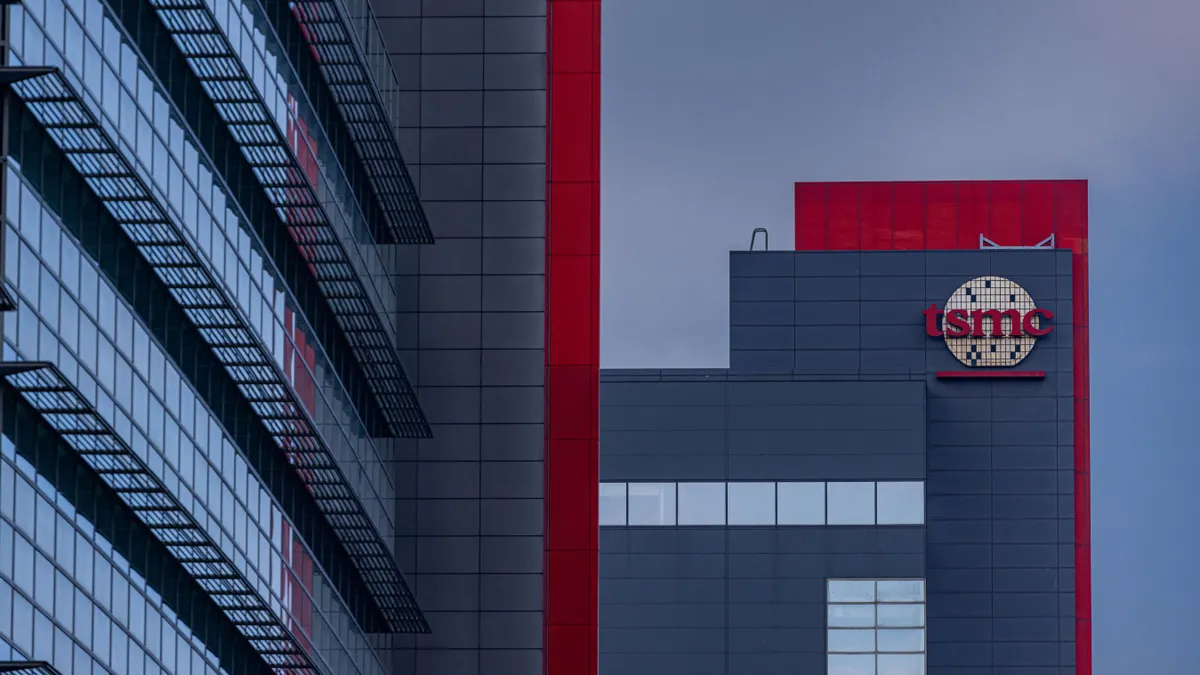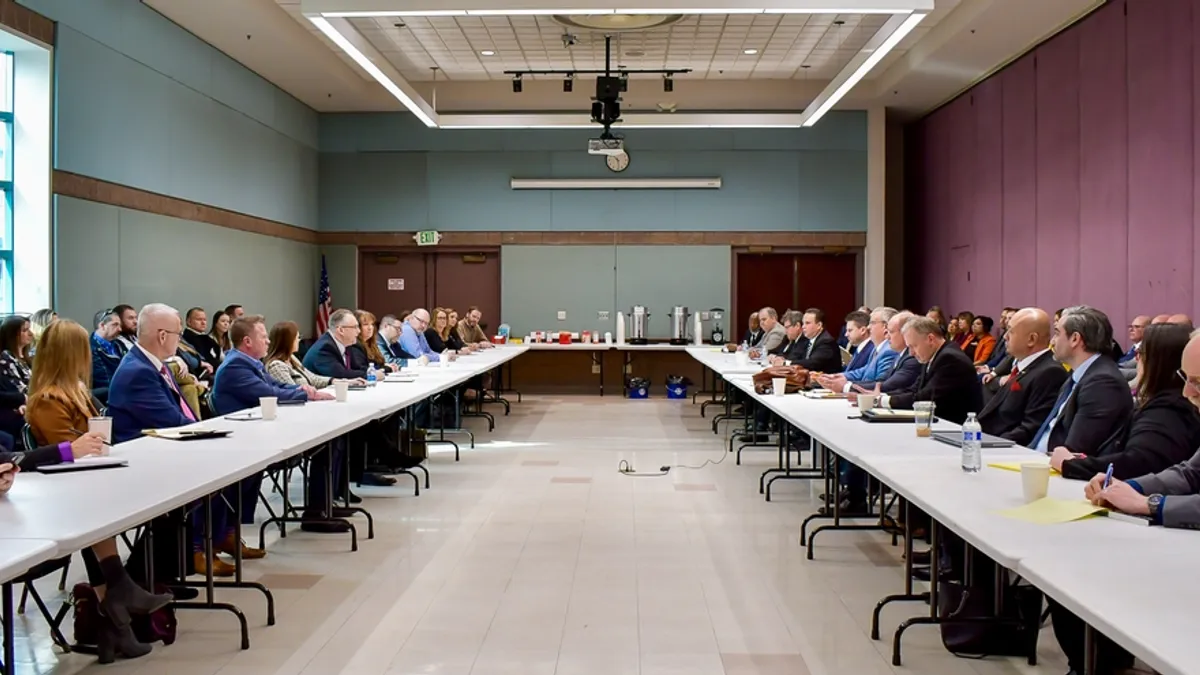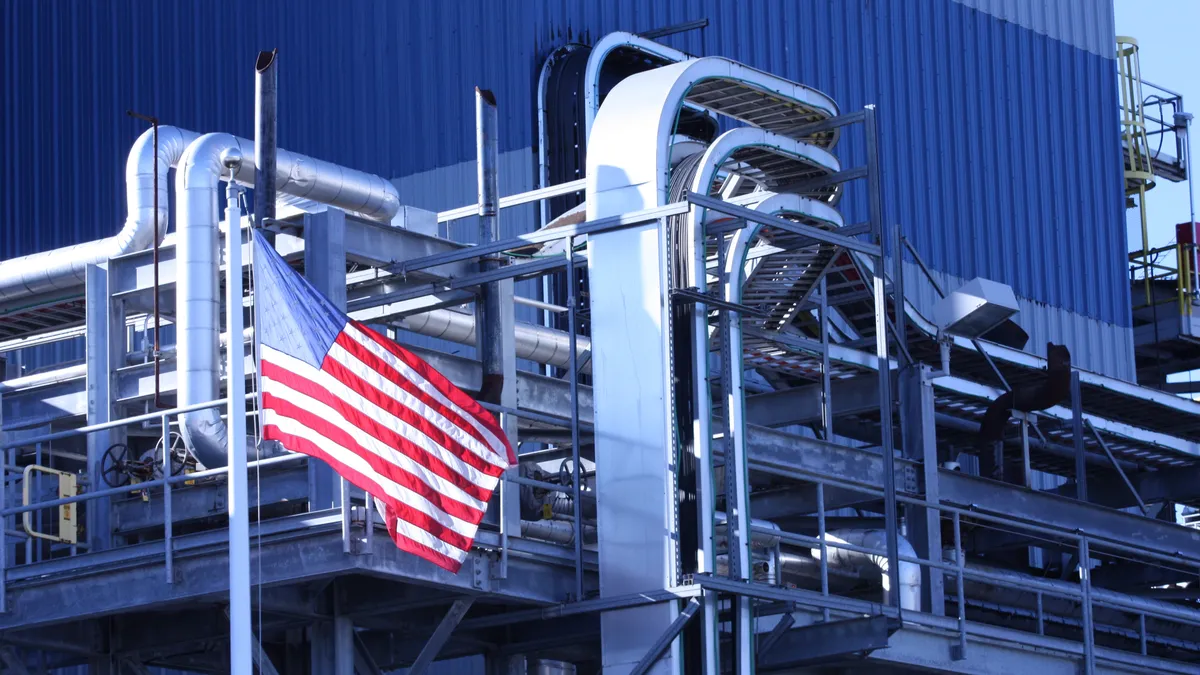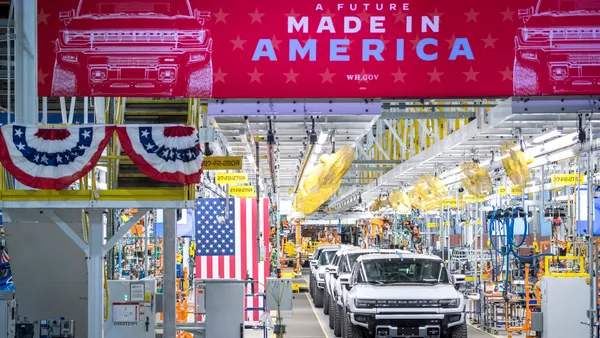Dive Brief:
- Taiwan Semiconductor Manufacturing Co. reported a record Q3 revenue of $23.5 billion, up 36% year over year, driven by the booming artificial intelligence wave, according to the company’s earnings release.
- AI processor-related demand in particular is rising — the chipmaker expects revenue from the segment to more than triple this year and account for a mid-teens percentage of TSMC’s total revenue in 2024.
- "Our business in the third quarter was supported by strong smartphone and AI-related demand for our industry-leading 3 nanometer and 5 nanometer technologies," TSMC SVP and CFO Wendell Huang said on the quarterly earnings call.
Dive Insight:
Beyond AI-related offerings, TSMC CEO C.C. Wei noted on the call that overall semiconductor demand has stabilized and started to improve.
The global semiconductor market hit a sales total of $53.1 billion in August and saw month-to-month sales increases for the fifth consecutive month, according to a report from the Semiconductor Industry Association.
For Q4, TSMC expects revenue to be between $26.1 billion and $26.9 billion, up 13% from previous projections, Huang said on the call. The positive forecast stems from demand for leading edge 3-nanometer and 5-nanometer process technologies as well as “extremely robust AI-related demand,” Wei said.
To keep up with soaring demand, the company is currently investing $65 billion into constructing three major fabrication plants in Arizona. The first fab is set to open next year, the second facility is scheduled to begin volume production in 2028 and the third plant will start production by the end of the decade, Wei said on the call.
The advancement of the first and second fabs is ongoing, following earlier delays caused by a shortage of specialized labor and licensing challenges.
TSMC is using AI and machine learning in its fabs and research and development activities, according to Wei. “By using AI, we are able to create more value by driving greater productivity, efficiency, speed, qualities,” he said on the call. “And think about it, 1% productivity gain, that’s almost equal to about $1 billion to TSMC.”
Full-year revenue should rise 30% year-over-year, Wei added.
TSMC is partnering with a major U.S.-based chipmaker on the Arizona project. Amkor Technology and TSMC signed an agreement in October to collaborate on advanced packaging and testing capabilities for their Arizona fabs, the latter of which is nearby in Peoria, Arizona.
The partnership aims to quicken product cycle times by integrating TSMC's Phoenix wafer fabrication with Amkor's Peoria packaging and testing plant, according to an Amkor press release.
When asked about its plans with Intel on the call, Wei said TSMC has no interest in buying Intel's foundry business. In an effort to build up its troubled foundry unit, Intel has been trying to entice customers to be part of the segment, with Microsoft as one of its latest customers.
TSMC is also in the midst of constructing fabs in Japan. In Kumamoto, its first specialty technology fab will begin production this quarter, Wei said on the call. Meanwhile, construction of its second specialty technology fab in the city will begin in Q4 2025 and support its consumer, automotive, industrial and HPC-related applications customers.
The company broke ground on its specialty technology fab in Dresden, Germany in August. Volume production is set to begin in 2027.












